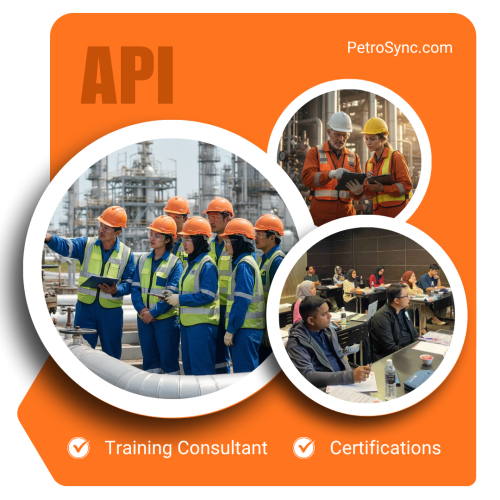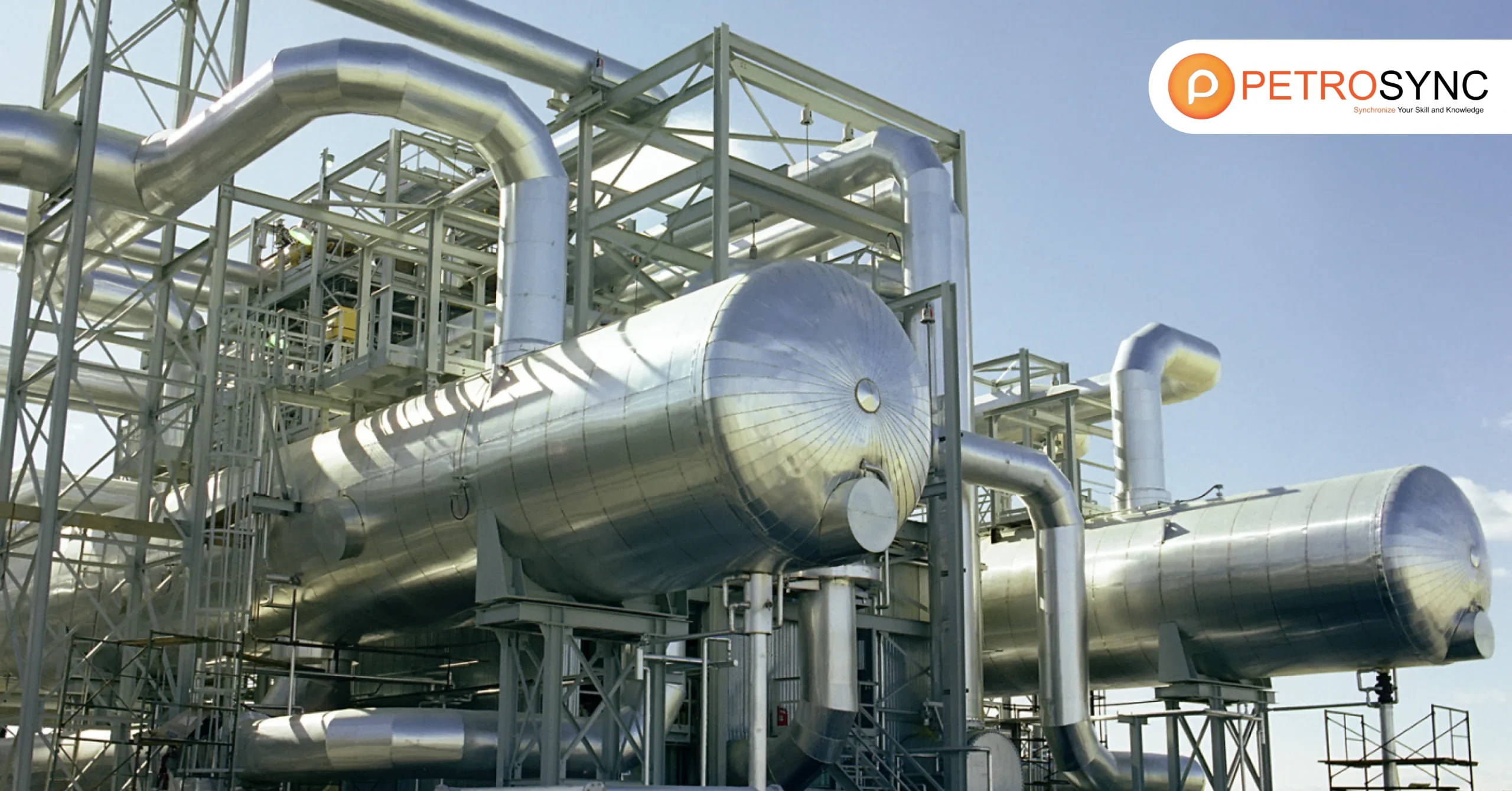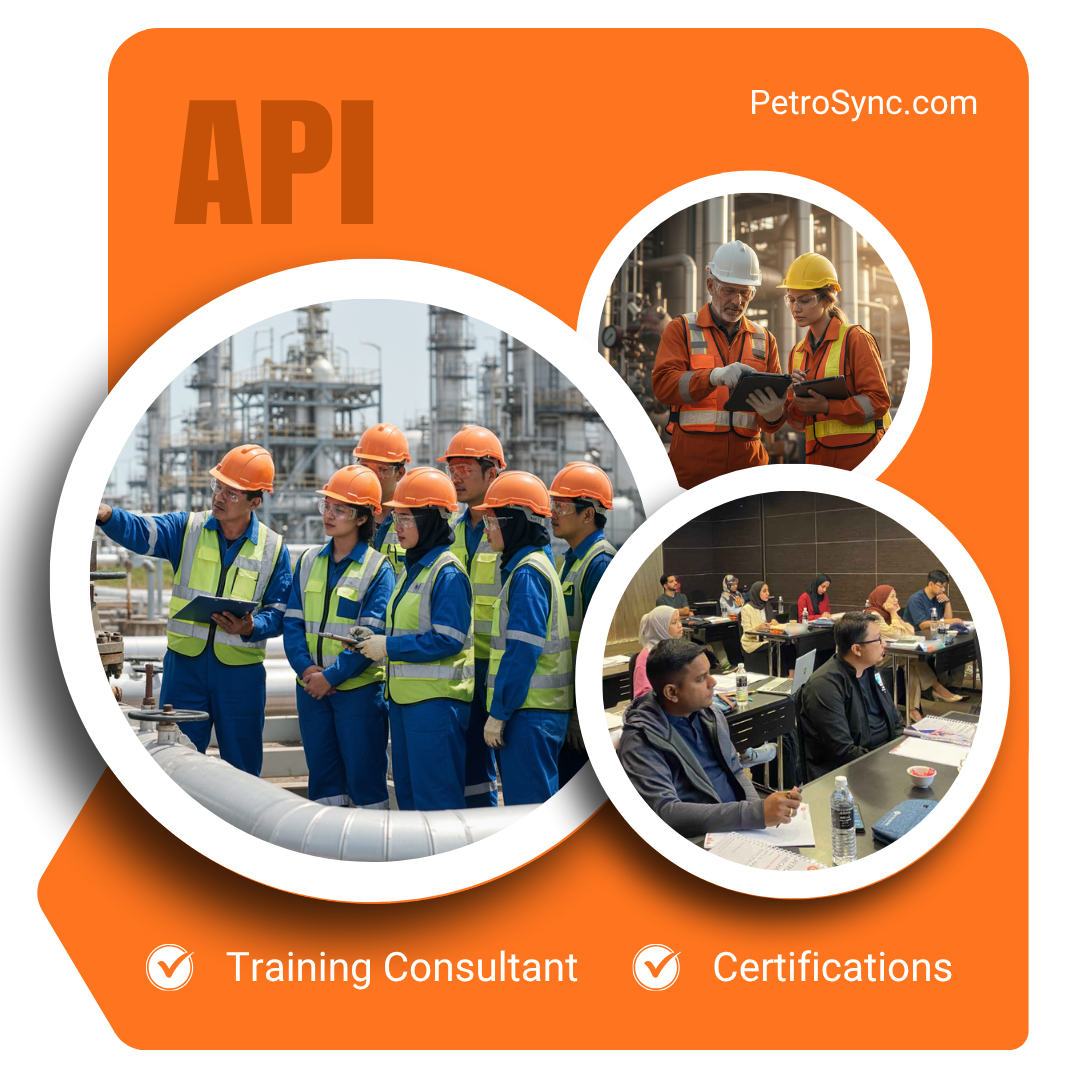API 510 plays a critical role in ensuring the safety and integrity of pressure vessel used across the oil and gas, and petrochemical industries. These industries depend on high-pressure systems, where even minor failures can lead to serious risks, operational downtime, or costly damage.
That’s why regular inspections and maintenance aligned with API 510 standard are essential to keep equipment reliable, operations efficient, and safety guaranteed. In this article, we’ll explore what API 510 covers, why it matters, and how it helps companies meet strict industry requirements.
Table of Contents
ToggleWhat is API 510?
What exactly is API 510? The API 510 certification from the American Petroleum Institute certifies experts in the inspection, maintenance, and repair of pressure vessel, assuring their safety and integrity. API 510 is widely recognized as the standard for durability and compliance in industries such as oil and gas, chemicals, and power.
The meaning API 510 is a certification focused on the maintenance, inspection, and repair of pressure vessel during operation. It helps inspectors ensure safety and structural integrity in industries like oil, gas, and chemicals. API 510 aids businesses in systematically meeting durability and safety standards.
What does API 510 Cover?
API 510 certification covers key issues for pressure vessel inspection and maintenance. Safety requirements, structural integrity, maintenance, and regulatory compliance are all critical considerations. This ensures that professionals are prepared to identify hazards, handle documentation, and maintain safety in industries such as oil and gas.
Design Codes and Standards:
Because it monitors the design and construction of pressure vessel, familiarity with industry standards such as ASME Section VIII, Division 1 is essential. Professionals who are knowledgeable with these standards can help assure compliance, maintain safety, and effectively manage inspection and repair activities, leading in greater operational efficiency.
Inspection Techniques:
Non-destructive testing (NDT) methods, including radiography, ultrasonics, and magnetic particle inspections, are vital for assessing pressure vessel integrity. These techniques enable thorough evaluations without damaging equipment. By using NDT, technicians can identify structural issues early in maintenance, ensuring safety and enhancing reliability.
Failure Mechanisms:
Understanding common failure processes, such as corrosion, fatigue, and stress cracking, is crucial to maintaining pressure vessel integrity. Understanding these problems allows professionals to develop effective detection and prevention techniques. Identifying these issues early on improves operational safety and reliability.
Repair and Alteration:
The understanding of failure mechanisms such as corrosion, fatigue, and stress cracking is critical for pressure vessel integrity. Understanding these challenges allows professionals to use efficient detection methods. Repair and modification guidelines also help guarantee that vessels fulfill safety standards and operate reliably.
Inspection Intervals:
Understanding failure mechanisms such as corrosion, fatigue, and stress cracking is critical for maintaining pressure vessel integrity. This knowledge enables professionals to create efficient detection strategies. Adherence to repair recommendations ensures that boats satisfy safety standards, and scheduling inspection intervals based on risk assessments is critical to safety.
How to Get API 510 Certification?
To become an API 510 certified inspector, individuals must meet the experience requirements set by the American Petroleum Institute, pass a rigorous examination, and maintain the certification through ongoing education and recertification every three years.
The steps to obtain certification are as follows:
- Meet Experience Requirements: Depending on your education background, you will need a specific number of years of experience in pressure vessel inspection.
- Submit Application: Apply through the API website, providing proof of experience and any necessary documentation.
- Pass the Exam: The API 510 exam consists of 170 multiple-choice questions, covering both open- and closed-book sections. The exam primarily tests knowledge of inspection codes, pressure vessel components, and safety protocols.
- Recertification: Certified inspectors must renew their certification every three years to stay up-to-date with industry changes and maintain their credentials.
How to Study for API 510?
Preparation for the API 510 exam requires thorough study and understanding of several key codes, particularly API 510, API 572, API 576, and ASME Section VIII. Here are some study tips to help you succeed:
- Review the API Body of Knowledge: This document outlines the specific topics covered in the exam. Use it as a roadmap for your studies.
- Enroll in a Training Course: Many organizations offer prep courses that provide a structured approach to learning the material and gaining hands-on experience.
- Practice Exams: Taking practice tests is essential to familiarize yourself with the exam format and question style.
- Focus on Weak Areas: Identify the topics that are most challenging for you and dedicate extra study time to mastering those areas.
- Join Study Groups: Collaborating with peers who are also preparing for the exam can provide valuable insights and reinforce learning.
How Hard is the API 510 Exam?
The API 510 exam is deemed difficult because of the technical nature of the subject and the level of knowledge required. This rigorous exam not only tests familiarity with inspection codes and standards, but also measures the practical application of these concepts in real-world situations, needing extensive preparation for success.
Many applicants struggle with the closed-book component, which combines code knowledge and inspection techniques. Passing the exam is feasible if you prepare and use the required materials. Understanding and applying the subject matter in a pressure vessel inspection situation is typically required for success.
What are the Benefits of API 510?
API 510 certification provides several benefits not only to inspectors but also to enterprises that use pressure vessel. Some of the main advantages include:
Improved Safety: Following API 510 rules guarantees that firms perform pressure vessel inspections and maintenance in accordance with severe industry requirements. This reduces the risk of failures, leaks, and explosions, which can have catastrophic effects on both personnel and the environment.
Regulatory Compliance: Many countries and regions mandate API 510-certified inspections for pressure vessels as part of their safety regulations. Having API 510 certification guarantees that companies meet these legal requirements and avoid potential fines or shutdowns.
Regular inspections and maintenance in accordance with API 510 rules help to extend the life of pressure vessels. Identifying early symptoms of wear and tear can help organizations save money by avoiding costly repairs or replacements.
API 510 improves operational efficiency by reducing unscheduled downtime with a clear inspection framework. Preventative practices ensure that pressure vessels continue to perform properly, hence reducing disruptions and enhancing production efficiency.
API accreditation is acknowledged in the industry as a mark of competence and expertise. Individuals who have obtained API 510 certification benefit from increased work prospects and industry credibility. Employing API-certified inspectors builds trust with customers, stakeholders, and regulatory agencies.
What is the Passing Score for API 510?
API 510 certification requires completing a difficult examination designed to evaluate a person’s knowledge and expertise in pressure vessel inspection. The exam is divided into sections that address numerous topics relevant to the inspection, repair, alteration, and maintenance of pressure vessels.
Participants must get at least 70% on the API 510 exam. This passing score indicates a complete understanding of the API 510 criteria and that the individual is qualified to execute API-compliant pressure vessel inspections. The exam comprises both open-book and closed-book components, and test takers.
Participants Must demonstrate a thorough understanding of API standards, codes, and real-world inspection scenarios. Preparation is necessary because the certification process is difficult, but the reward is a globally recognized accreditation that opens up new employment opportunities in the oil, gas, and energy sectors.
API 510 accreditation is highly important for individuals in industries that rely heavily on pressure vessels. It ensures not only safety and compliance with standards, but also improves operating performance and increases the lifespan of critical equipment. Companies with API 510 certification may ensure that their pressure vessels meet the highest levels of safety and reliability.
Enhance Your Skills with PetroSync’s API 510 Certification Course
Obtaining API 510 certification is highly desirable, as it enables you to actively contribute to improving industry and environmental health and safety performance, reinforcing management control, and complying with inspection capabilities. With PetroSync’s expert instructor, Mr. Chintamani is involved in facilities inspection practical.
Join us and enhance your inspection of pressure vessel systems skills with PetroSync! API 510 Training with Our along with his practical coaching and mentoring approaches. making this course an excellent preparation for the API 510 examination. It also enhances your appreciation of pressure vessel facilities.

Results-oriented and thorough SEO specialist with extensive experience in conducting keyword research, developing and implementing digital website promotion strategies and plans, managing campaigns to develop company websites in the digital world, excellent knowledge of marketing techniques and principles, and attentive strong attention to detail.









